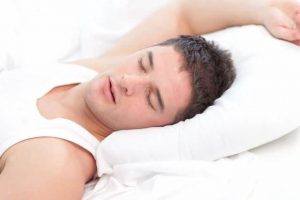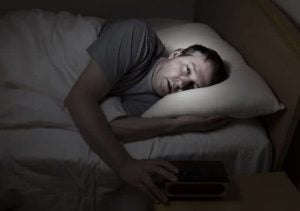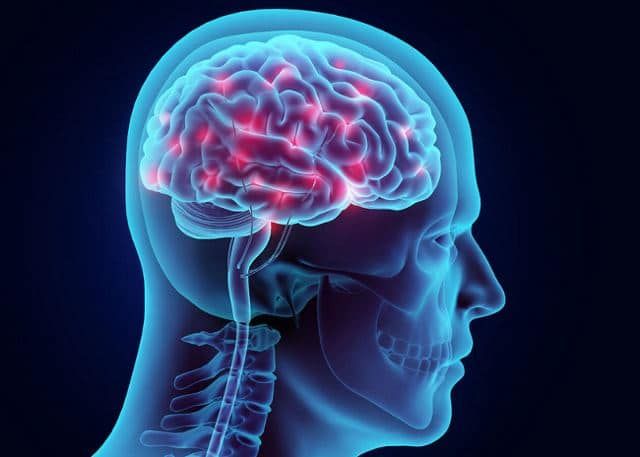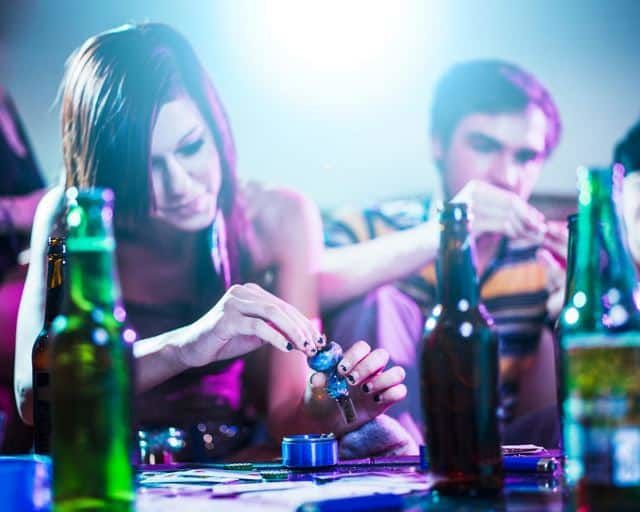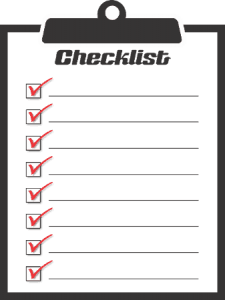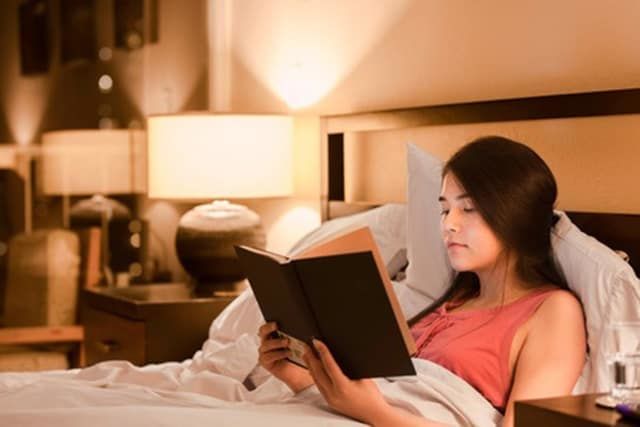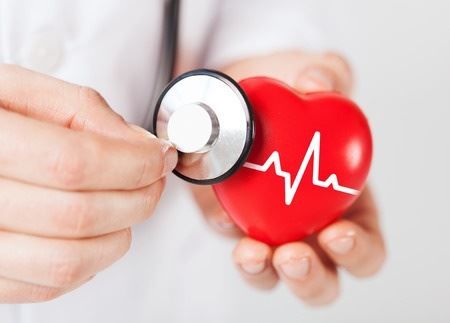Have you ever been laying in bed just about to drift off to sleep when your body shakes you awake and your heart starts racing? If this happens to you, it might feel like the relaxing and calm bedtime is a long way off for you. You may have even come to dread laying in bed at night and trying to sleep as the shock you feel through this natural phenomenon is unpleasant.
What you might not realize is that thousands of people around the world suffer from this same experience and it has a name – hypnic jerks.
The hypnic jerk definition is an “involuntary twitch” that happens just as you are about to fall asleep. It is also known as a hypnagogic jerk, sleep start, sleep twitch or night start and it feels just like someone shocking you or making you “jump” while awake.
You may experience hypnic jerk symptoms other than the initial twitch or shudder which include a racing heartbeat, quickened breathing, sweating and even a feeling of shock as if you have narrowly missed being hit by a car or received a shot of adrenaline.
If you are suffering this every night, then life can seem unbearable and it can cause you anxiety. The good news is that there is a cure and there are natural treatments to help you drop off to sleep soundly without this involuntary muscle movement.
I’ve put together a guide to hypnic jerk causes and treatments to help you if you are suffering from this problem.
So read on to become better informed about this phenomenon and find out what you can do to reduce them and even prevent them from happening altogether.
Introduction to the Hypnic Jerk

It is most commonly in people with irregular sleep cycles like those who work all night long or parents of newborn babies. Even people who suffer from insomnia or who are unable to sleep right through the night will suffer from this strange phenomenon at some stage in their lifetime.
What is a Hypnic Jerk?
The hypnic, or hypnogogic jerk, is the actual movement and feeling you experience. It is sudden and can leave you feeling wide awake or disturbed for some time after the actual “jerk” itself. Some people lash out or move their arms and legs when they experience a hypnic jerk while others may just jump or twitch slightly. In a few cases, a hypnic jerk is accompanied by a vocal noise like a shout or scream as the body reacts to the violent nature of a chronic hypnic jerk.
The experience varies from person to person, some people move only slightly and experience just one or two episodes before finally getting to sleep but in severe cases the sufferer may be awoken or shaken awake from the near-sleep state continually every night. This is when the phenomenon becomes troublesome and can start to impact on a person’s everyday life and performance at work. As many as 70 percent of people suffer from hypnic jerks so it is fair to say most people will experience this at least once in their lifetime.
What Causes It and Why Does It Happen?
There are a lot of theories as to hypnic jerk causes and no one has yet found the definitive answer to this millennia-old problem. The AAOSM has studied this problem and scientists came up with a wide variety of causes including anxiety, coffee, stressful issues and even exercise too late in the night.
Although these things have an anecdotal link, and it is true that people with bad sleep habits do suffer from them, they also occur at random in completely normal people who do get enough sleep. Another possible cause of the falling sensation that goes alongside hypnic jerks is the brain misunderstanding what is happening. As your muscles relax when you lay down to go to sleep, the brain can misinterpret the muscles relaxing as the fact that your body is actually falling. Therefore your brain panics and sends signals to your muscles to wake up and hang on! And that’s your hypnic jerk.
Drugs and alcohol can also cause hypnic jerks and in some (quite rare) cases hypnic jerks have been found in people with brain lesions. It is even a symptom of Parkinson’s Disease but don’t worry if you experience this – it doesn’t mean you will be diagnosed with a long term illness.
Being very tired or over exhausted is another cause of this jerking before sleep which can make it even more frustrating for the sufferer as they may desperately want to get to sleep but be prevented by the twitching. Stress is also named as one of the contributory factors as the feeling of being constantly on edge or on “high alert” through the day is difficult to shake off when you want to relax and fall asleep. Exercising late in the day or too close to bedtime can also cause you to suffer a hypnic jerk and problems sleeping.
Another really interesting theory is that this involuntary stimulation is actually a result of evolution. As we are descended from primates, the hypnic jerk would have helped our ancestors stay gripping onto a tree as the brain mistook the feeling of muscles relaxing for falling from the high point! This peculiar brain wiring may have stayed with us even though we have evolved over millions of years.
Another evolution-based explanation for this feeling is that your brain is shaking you awake so you can check the area is still safe – a handy safety mechanism for our ancestors who had large and dangerous predators to look out for but a modern day annoyance when we are snuggled up safely in bed. It may be that you identify with some, or even all, of these causes but it can still happen at random even if you are sleeping right, exercising early and staying away from stress, caffeine or alcohol. Some medication can also cause this problem so it is worth it to ask a doctor if this has come on suddenly and you are taking new or different medication.
What Does a Hypnic Jerk Look Like to Another Person?
Hypnic jerks look different to every person and some are more violent than others. This YouTube video shows someone who is suffering from an extreme case of hypnic jerks and it shows her repeatedly shaking, being vocal, and lashing out strongly as she tries to fall asleep.
This kind of chronic hypnic jerk is thankfully rarer than the kind suffered by 70 percent of the population but it is easy to see why it is upsetting not just for the sufferer but for partners or husbands and wives who have to witness their beloved struggling with this awful feeling. It is even present in babies and small children which adds fuel to the fire of speculation that it is not just related to stress or exercise before bed.
If a child is overtired, or has stayed up past their bedtime, they might well experience this feeling and struggle to get to sleep which can be frustrating for the parents as well as the child. It can come on throughout childhood as children’s brains develop and their sleep patterns change. While it can be distressing to watch, it is not harmful and as anyone who has suffered from them know it does soon pass.
The best thing to do is quietly reassure your child and put them back to sleep. If it continues, or becomes chronic, then seek the advice of a sleep specialist.
Is a Hypnic Jerk a Sleep Disorder?
Alone, this feeling is not a sleep disorder but as explained above it may be a result of another sleep disorder or it may well cause you to suffer one. Repeated sleep starts can cause anxiety and panic attacks. The fear of suffering a hypnic jerk as you fall asleep can set off other problems with your sleep and cause disturbances or difficulty sleeping.
While a hypnic jerk in itself isn’t a sleep disorder, it can be easily confused with a chronic and quite dangerous sleep disorder called sleep apnoea. This is where your breathing and airways becomes obstructed as the muscle and tissue in your throat relaxes and can block your airways for ten seconds or more. This can cause you to jerk awake as your brain reacts to the lack of oxygen coming through and sends a panic signal to your limbs.
You may be interested in: All About the CPAP Machine
You may find you are snoring and seeing other symptoms like noisy breathing and short periods where there is no breathing at all. It is quite difficult to diagnose alone as often the sufferer doesn’t realize they are having trouble breathing and it is the “jump” feeling that causes them to wake which is why it is confused with a hypnic jerk.
Try videoing yourself or ask for a consultation at a sleep clinic to get to the bottom of the problem. Untreated sleep apnoea can lead to cancer, strokes or even cause death so if you suspect this might be the cause of your hypnic jerks then go straight to your doctor.
Hypnic Jerks and Anxiety – a Vicious Cycle
As mentioned above, the fear of suffering a hypnic jerk as you fall asleep can cause anxiety but anxiety itself may cause hypnic jerks. This can leave sufferers in a vicious circle where they fear and feel anxious about going to sleep and the anxiety and panic attacks actually make the situation worse. It can feel like you are fighting a losing battle when faced with the two problems side by side but there are techniques and tips you can use to get yourself out of this situation and back to a relaxing night’s sleep.
One of the best things to do is stop caring about how much sleep you get and plan to not sleep at all. This sounds like weird advice but many people end up brooding and worrying about how much sleep they will get before their head even hits the pillow. This just makes the whole situation worse.
However, if you say to yourself that you aren’t going to get a full eight hours and make peace with that, you take away the main worry which is likely the thing keeping you awake. It could lead you to having a good night’s sleep and then the anxiety and extreme fatigue will go as well – reducing your risk of having a hypnic jerk. There are other things you can do during the day to deal with anxiety and stop worrying about not being able to sleep.
Keeping a journal is one of the first things you can do to tackle anxiety and it will also help you identify any triggers that make your worry and stress worse. As you write down your thoughts from the day, physically imagine them leaving your mind and resting onto the paper. That way you are mentally clearing your mind before bed which will stop you brooding and over thinking the day.
If there are specific things you are worrying about and things you can’t find a solution for, writing them down can also help.
Make a list of things you are concerned about before bed and then even if you haven’t found a solution you can put them out of your mind in the knowledge that they are safely written down and can be dealt with in the morning. Confronting obsessive thoughts or recurring worries can also help you tackle them and calm your mind.
Identifying when your thoughts become repetitive and unhealthy is a good technique to get your mind out of that automatic anxiety setting. If you are really struggling, seek a therapist and talk through your problems. Cognitive Behavioural Therapy, hypnosis and other talking therapies can help you work through the issues that are causing you anxiety.
Distracting yourself also works, read a book or listen to an audiobook on a low volume through headphones so you can concentrate on something else which will help you go to sleep. Meditation, mindfulness and even yoga are also great ways to combat anxiety and, as a result, lessen the risk of suffering hypnic jerks and break that cycle.
The Impact on Your Life
Chronic or violent hypnic jerks can cause real problems for people and impact on their work and home life. If the hypnic jerks are causing you to lose sleep then you could be storing up problems for the future. The side effects of sleep deprivation can cause damage in the short term but continued lack of sleep can be really dangerous. We all know the feeling after a bad night’s sleep, the groggy slow feeling, bad mood and a weakened immune system are immediate problems that you can suffer after just one night of no or disturbed sleep.
Over time, you could suffer weight gain, depression, heart disease and high blood pressure. This lack of sleep can cause you to become less productive at work or have lower energy levels to spend time with your family. This is why it is so important to tackle the causes of this unpleasant feeling as soon as you can before it escalates.
You may be interested in: The Link Between Sleep & Your Heart Health
How to Stop Hypnic Jerks
The good news is, there are lots of things you can for hypnic jerks treatments. Running through the treatments one by one, you should be able to isolate what aggravates your problem the most and then tackle it to get yourself back to a peaceful night. For the most part, these are all homeopathic treatments, too.
Caffeine is also best avoided if you don’t want to feel the unpleasant effects. Even a coffee in the afternoon can affect your sleep overnight and a lack of sleep can cause hypnic jerks. Try to keep caffeine to a minimum and if you really must have it then go for a morning coffee and try to avoid another caffeine boost past about midday.

Exercising too close to bedtime can wind your body up and tense your muscles which is one of the known causes of hypnic jerks. Try to exercise in the morning or only do a relaxing workout, such as yoga or Pilates, in the evening instead of going for a run or doing an intensive workout. Improving your sleep pattern is also a key treatment for hypnic jerks since so many sufferers find them worsening or coming on when they are exhausted or haven’t had a night of unbroken sleep. Get yourself in a pre-sleep routine.
This can include taking a warm bath, listening to a piece of music or audiobook, drinking a relaxing brew such as chamomile, peppermint or cocoa and cutting out screen time or emailing for an hour before bedtime. You should also make sure your bedroom is a relaxing and calm sleep environment.
Get rid of the TV, make sure it is at the right temperature and your bed is free from too many pillows or blankets that might mean you’re sleeping in an awkward position. Ban phones, tablets or other electronic devices and if you really need a distraction get a book or a coloring book to use before you go to sleep. A good blind is also helpful if you are on night shifts as is a sleep mask to make sure your brain is tricked into thinking it is actually night time.
Try going to bed an hour before you need to actually go to sleep, this gives you time to unwind without feeling that all too familiar pressure of “needing” to go straight to sleep in order to get the set eight hours. Magnesium and calcium supplements can also help your muscles relax and stop them spasming so try to make sure you get plenty in your diet or take a recommended supplement.
This is easy to say and hard to do (especially if you have a demanding job or a newborn baby!) but try not to let yourself get too fatigued. Make sure you plan ahead and if you do have a long day and not much sleep, try your hardest to build in some time to catch up and get back on track with your sleep. In the long term, this will cure your hypnic jerks and you will find the more sleep you have the rarer the episodes become. Also, invest in some quality bedding and a good mattress. Studies have shown that making your bed and having a cozy haven to fall asleep in dramatically improves the quality of sleep you get.
Conclusion
We hope you enjoyed this list and have learned something about hypnic jerks, why they happen, what it actually is and how you can help to reduce them or stop them altogether.
We’ve gone through the probable causes and although no one knows 100% what is behind these strange episodes there are a few things which are known to make them worse or bring them on including drinking caffeine, late exercise and even a lack of magnesium.
If you are someone struggling with hypnic jerks or you are stuck in the cycle of anxiety and these involuntary spasms then we hope this article has given you more insight into the condition, its causes and given you some ideas as to how you can treat it and bring it down to a manageable level.
If hypnic jerks are interfering with your sleep, please consult your doctor.
Please share this article if you have found it helpful and comment below if you’ve got any more tips and advice for people suffering from hypnic jerks.
